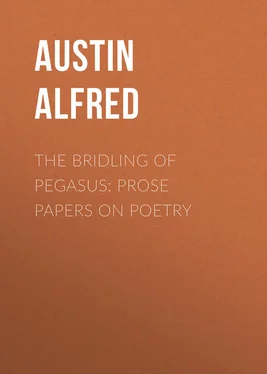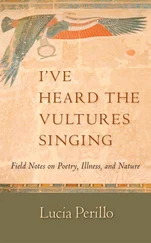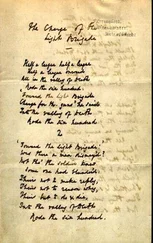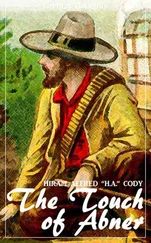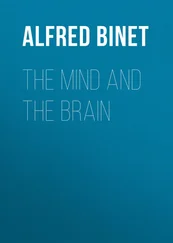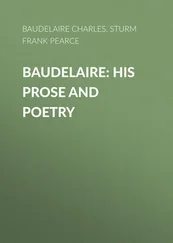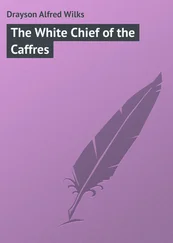Alfred Austin - The Bridling of Pegasus - Prose Papers on Poetry
Здесь есть возможность читать онлайн «Alfred Austin - The Bridling of Pegasus - Prose Papers on Poetry» — ознакомительный отрывок электронной книги совершенно бесплатно, а после прочтения отрывка купить полную версию. В некоторых случаях можно слушать аудио, скачать через торрент в формате fb2 и присутствует краткое содержание. ISBN: , Жанр: foreign_antique, foreign_prose, foreign_poetry, на английском языке. Описание произведения, (предисловие) а так же отзывы посетителей доступны на портале библиотеки ЛибКат.
- Название:The Bridling of Pegasus: Prose Papers on Poetry
- Автор:
- Жанр:
- Год:неизвестен
- ISBN:http://www.gutenberg.org/ebooks/35394
- Рейтинг книги:3 / 5. Голосов: 1
-
Избранное:Добавить в избранное
- Отзывы:
-
Ваша оценка:
- 60
- 1
- 2
- 3
- 4
- 5
The Bridling of Pegasus: Prose Papers on Poetry: краткое содержание, описание и аннотация
Предлагаем к чтению аннотацию, описание, краткое содержание или предисловие (зависит от того, что написал сам автор книги «The Bridling of Pegasus: Prose Papers on Poetry»). Если вы не нашли необходимую информацию о книге — напишите в комментариях, мы постараемся отыскать её.
The Bridling of Pegasus: Prose Papers on Poetry — читать онлайн ознакомительный отрывок
Ниже представлен текст книги, разбитый по страницам. Система сохранения места последней прочитанной страницы, позволяет с удобством читать онлайн бесплатно книгу «The Bridling of Pegasus: Prose Papers on Poetry», без необходимости каждый раз заново искать на чём Вы остановились. Поставьте закладку, и сможете в любой момент перейти на страницу, на которой закончили чтение.
Интервал:
Закладка:
The westlin wind blaws loud an’ shrill;
The night’s baith mirk and rainy, O;
But I’ll get my plaid, an’ out I’ll steal,
An’ owre the hills to Nannie, O.
Her face is fair, her heart is true,
As spotless as she’s bonnie, O:
The op’ning gowan, wat wi’ dew,
Nae purer is than Nannie, O.
That is one amatory, one feminine note in Burns. Here is another:
There’s nought but care on every han’,
In every hour that passes, O;
What signifies the life o’ man,
An’ ’twere na for the lasses, O.
Auld Nature swears the lovely dears
Her noblest work she classes, O:
Her ’prentice han’ she tried on man,
An’ then she made the lasses, O.
I have no fault to find with these lines. They express a profound and enduring truth; and, if they do so with some little exaggeration, they do it half humorously, and so protect themselves against criticism. But I really think – I hope you will not deem me unchivalrous in saying so – we have, during the present century, heard too much, both in poetry and in prose romance, as we are now hearing too much in newspapers and magazines, of “the lasses, O.” Not that we can hear too much of them in their relation to each other, to men, and to life. The “too much” I indicate is the too much of romantic love, that leaves no place for other emotions and other passions equally worthy, or relegates these to an inferior position and to a narrower territory. I should say that there is rather too much of the sentimental note in Byron, in Shelley, in Keats, just as I should say that there is not too much of it in Wordsworth or in Scott. To say this is not to decry Byron, Shelley, and Keats – what lover of poetry would dream of decrying such splendid poets as they? – but only to indicate a certain tendency against which I cannot help feeling it is well to be on our guard. The tendency of the times is to encourage writers, whether in prose or verse, to deal with this particular theme and to deal with it too frequently and too pertinaciously. Moreover, there is always a danger that a subject, in itself so delicate, should not be quite delicately handled, and indeed that it should be treated with indelicacy and grossness. That, too, unfortunately, has happened in verse; and when that happens, then I think the Heavenly Muse veils her face and weeps. It must have been through some dread of poetry thus dishonouring itself that Plato in his ideal Republic proposed that poets should be crowned with laurel, and then banished from the city. For my part, I would willingly see such poets banished from the city, but not crowned with laurel. No doubt Plato’s notion that poets should chant nothing but hymns to the Gods and praises of virtue is a little narrow and exacting, but if they are to sing songs worthy of themselves, and of mankind, they must be on the side of virtue and of the Gods. Hark with what perfect delicacy a masculine poet like Scott can deal with a feminine theme:
What though no rule of courtly grace
To measured mood had trained her pace,
A foot more light, a step more true
Ne’er from the heath-flower dashed the dew.
Ev’n the light harebell raised its head,
Elastic from her airy tread.
What though upon her speech there hung
The accents of the mountain tongue?
Those solemn sounds, so soft, so clear,
The listener held his breath to hear.
That is how manly poets write and think of women. But they do not dwell over much on the theme; they do not harp on it; and when you turn the page, you read in a totally different key:
The fisherman forsook the strand,
The swarthy smith took dirk and brand;
With changëd cheer the mower blythe
Left in the half-cut swathe the scythe.
The herds without a keeper strayed,
The plough was in mid-furrow stayed.
The falconer tossed his hawk away,
The hunter left the stag at bay.
Prompt at the signal of alarms,
Each son of Albion rushed to arms.
So swept the tumult and affray
Along the margin of Achray.
Does it not remind you of the passage I quoted from Homer, where Hector says to Andromache, “Go! to your house, and see to your loom and distaff, but for war men will provide”? Scott, like Homer, observed the due proportion between love and life, giving love ample room, but not allotting it excessive space. If again one wants to hear how delicately, how worthily, how manfully, poets can write of love and of women, what can one do better than recall this perfect lyric of Wordsworth’s? —
Three years she grew in sun and shower,
Then Nature said, “A lovelier flower
On earth was never sown;
This Child I to myself will take;
She shall be mine, and I will make
A Lady of my own.
“Myself will to my darling be
Both law and impulse: and with me
The Girl, in rock and plain,
In earth and heaven, in glade and bower,
Shall feel an overseeing power
To kindle or restrain.
“She shall be sportive as the Fawn
That wild with glee across the lawn
Or up the mountain springs;
And hers shall be the breathing balm,
And hers the silence and the calm
Of mute insensate things.
“The floating Clouds their state shall lend
To her; for her the willow bend;
Nor shall she fail to see
Even in the motions of the Storm
Grace that shall mould the Maiden’s form
By silent sympathy.
“The Stars of midnight shall be dear
To her; and she shall lean her ear
In many a secret place
Where Rivulets dance their wayward round,
And beauty born of murmuring sound
Shall pass into her face.
“And vital feelings of delight
Shall rear her form to stately height,
Her virgin bosom swell;
Such thoughts to Lucy I will give
While she and I together live
Here in this happy Dell.”
Thus Nature spake – The work was done —
How soon my Lucy’s race was run!
She died, and left to me
This heath, this calm and quiet scene;
The memory of what has been,
And never more will be.
Neither should I like it to be supposed that I think Byron could not write on this same theme in the noblest manner. He did so frequently; he would not have been the great poet he is if he had not done so. Listen to this, for example:
She walks in beauty, like the night
Of cloudless climes and starry skies,
And all that’s best of dark and light
Meet in her aspect and her eyes.
Thus mellowed to that tender light
Which Heaven to gaudy day denies.
One shade the more, one ray the less,
Had half impaired the nameless grace
Which waves in every raven tress,
Or softly lightens o’er her face,
Where thoughts serenely sweet express
How pure, how dear, their dwelling place.
And on that cheek, and o’er that brow,
So soft, so calm, yet eloquent,
The smiles that win, the tints that glow,
But tell of days in goodness spent,
A mind at peace with all below,
A heart whose love is innocent.
Women are honoured and exalted when they are sung of in that manner. They are neither honoured nor exalted, they are dishonoured and degraded, when they are represented, either in prose or verse, as consuming their days in morbid longings and sentimental regrets, and men are represented as having nothing to do save to stimulate or satisfy such feelings. What is written in prose is not here my theme. I am writing of poets and poetry, and of the readers of poetry. Novelists and novel-readers are a different and separate subject. But I may say in passing that poetry and the readers of poetry have suffered somewhat during the present generation from novels and novel-readers. A newer and narrower standard of human interest has been set up; and while the great bulk of readers have turned from poetry to prose romances, writers of verse have too frequently tried to compete with novelists, by treating love as the central interest and the main business of life. Homer did not think it such, neither did Virgil, nor Dante, nor Chaucer, nor Spenser, nor Shakespeare, nor Milton, and let us not think so. I urge every one, every now and again at least, to lay down the novel and open the poem: but let it be a poem that will enlarge one’s conception of life, that will help one to think loftily, and to feel nobly, will teach us that there is something more important to ourselves even than ourselves , something more important and deserving of attention than one’s own small griefs and own petty woes, the vast and varied drama of History, the boundless realm of the human imagination, and the tragic interests and pathetic struggles of mankind. We need not close our ear to the feminine note, but should not listen to it over much. The masculine note is necessarily dominant in life; and the note that is dominant in life should be dominant in literature, and, most of all, in poetry.
Читать дальшеИнтервал:
Закладка:
Похожие книги на «The Bridling of Pegasus: Prose Papers on Poetry»
Представляем Вашему вниманию похожие книги на «The Bridling of Pegasus: Prose Papers on Poetry» списком для выбора. Мы отобрали схожую по названию и смыслу литературу в надежде предоставить читателям больше вариантов отыскать новые, интересные, ещё непрочитанные произведения.
Обсуждение, отзывы о книге «The Bridling of Pegasus: Prose Papers on Poetry» и просто собственные мнения читателей. Оставьте ваши комментарии, напишите, что Вы думаете о произведении, его смысле или главных героях. Укажите что конкретно понравилось, а что нет, и почему Вы так считаете.
